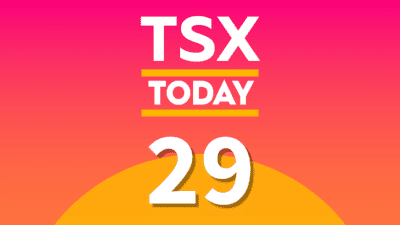Back in 2013, Bombardier, Inc.’s (TSX:BBD.B) then CEO Pierre Beaudoin identified “the strengthening of customer satisfaction through flawless execution on every order” as a key growth driver for the company.
That idea now looks like a pipe dream. Just last week The Toronto Transit Commission (TTC) announced that it is considering legal action in response to Bombardier’s inability to deliver new streetcars on time. The delays have forced commuters in Toronto to ride on the TTC’s older vehicles, which badly need replacing.
The scandal is very bad for Bombardier as well. The company is looking to divest a minority stake in Bombardier Transportation (BT), which includes the streetcar business. Potential investors have certainly taken notice.
So, what does this all mean for Bombardier and its investors?
Only the latest problem
This is not the first problem that BT has faced; the business unit has struggled for years. To illustrate, Bombardier hopes to earn 8% operating margins from BT, but hasn’t really come close in recent years.
| Year | BT Operating Margin |
| 2014 | 4.5% |
| 2013 | 5.8% |
| 2012 | 3.5% |
There are a few reasons for the shortfall, but mainly they come down to a lack of efficiency. BT grew over the years through acquisitions, but hasn’t properly integrated them all. Some changes have been made more recently, which have included layoffs, but if history is any guide then shareholders shouldn’t be holding their breath.
Time for a sale
Bombardier announced plans earlier this year to divest a minority stake in BT through an IPO. Now those plans are being put on hold, as the company looks to sell a stake in BT to another company instead. Either way, Bombardier wants to retain control.
Assuming Bombardier goes this route, BT would be valued at roughly US$5 billion. In other words, Bombardier could raise roughly US$1 billion by selling a 20% stake in BT.
But at this point, Bombardier should instead sell BT in its entirety. If this was done, then the acquirer should be able to get more value out of BT than Bombardier ever has. And for that reason, BT’s selling price would likely be a lot more than US$5 billion. So, when reports surfaced that a Chinese company was willing to pay US$7-8 billion for BT, it was no surprise.
There are other reasons to sell BT outright. Doing so would allow Bombardier to focus on its aerospace business, and allow the company to significantly repair its balance sheet. Yet the company remains steadfastly opposed to this option, not wanting to jettison a legacy of the company. The government of Quebec also opposes an outright sale, since it is worried that jobs would leave the province.
The wrong priorities
Over the past few years, it has become clear who matters most to Bombardier: its controlling family and the government of Quebec. Down at the bottom of the pecking order you can find the company’s customers and shareholders.
Perhaps this latest episode with the TTC will compel Bombardier to change this pecking order. But until then you shouldn’t buy the stock. After all, being a Bombardier shareholder feels a lot like riding one of the TTC’s old, outdated streetcars.








